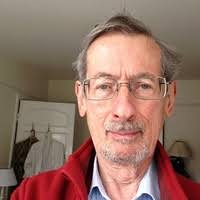Difference between revisions of "Ian Davidson (Bilderberger)"
(stub) |
(unstub) |
||
| (2 intermediate revisions by the same user not shown) | |||
| Line 2: | Line 2: | ||
|wikipedia= | |wikipedia= | ||
|twitter= | |twitter= | ||
| − | |constitutes= | + | |constitutes=journalist |
| − | |image= | + | |image=Ian davidson.jpg |
|interests= | |interests= | ||
| − | |nationality= | + | |nationality=Canadian |
|birth_date= | |birth_date= | ||
|birth_place= | |birth_place= | ||
|death_date= | |death_date= | ||
|death_place= | |death_place= | ||
| − | |description= | + | |description=[[Brussels]] and [[Paris]] correspondent for the ''[[Financial Times]]'' in the 1960s. Attended [[Bilderberg/1962]] |
|parents= | |parents= | ||
|spouses= | |spouses= | ||
|children= | |children= | ||
|relatives= | |relatives= | ||
| − | |alma_mater= | + | |alma_mater=Cambridge |
|political_parties= | |political_parties= | ||
|employment={{job | |employment={{job | ||
| − | |title= | + | |title=Foreign Editor |
| − | |start= | + | |start=1976 |
| − | |end= | + | |end=1979 |
| − | + | |employer=Financial Times | |
| − | | | ||
| − | |||
| − | |||
}} | }} | ||
}} | }} | ||
| + | '''Ian Davidson''' is a Canadian journalist who wrote on European integration and East-West relations. He was [[Paris]] and [[Brussels]] correspondent for the ''[[Finanical Times]]'' in the 1960s, and again in the 1980s. From 1976 to 1979 he was Foreign Editor of the newspaper.<ref>[https://watermark.silverchair.com/front_matter.pdf?token=AQECAHi208BE49Ooan9kkhW_Ercy7Dm3ZL_9Cf3qfKAc485ysgAAAzUwggMxBgkqhkiG9w0BBwagggMiMIIDHgIBADCCAxcGCSqGSIb3DQEHATAeBglghkgBZQMEAS4wEQQMRW7dPHGheLuyDJgDAgEQgIIC6GlkENNdr1tpBwmxNBZTU9U-CRtofoO7VzKeeJ7KXA-B1JUqSlC1I2Qb0rob1_hSgQcswsMtIq7PNu06lk0WROjKtytYfRIMEbSnxKOrae1n6Taig9fQZUifGJGINYx-_cLIhdMKcJIsW-oOo6ox9-04Vtsb025IhmmcRJIYZXoY7IPogQBPPh1a7W5muXqOeOyDjWg7inW_pllGIn3Erfog6QwyHmLp6BJWzncmGCdYFKmVZJJhCP5r_QTHFHFDrJNN05n8Cy0o8MBsvtw3NczSyEih-gj07jfLh8xaII2RYTquLrVCAyfI2ON0KtIBq6xXYXSJU2vZW-M7tlRcpVhEEkc74qZVF8tsDgXVfmlJqGWpL7XLYWVijjkhH-MTtcpA2Fh0fYuZbXz6V-GaIulVzah3h5bV-4pDoOiWc5mmzNsYtAotoY4UkRIOrwJPCZEk6kkA9t1UhhdkIUW5QU9hcMta5u8BkHqYybyWvmQXWX8QT_56ihqtVYOgDNOVJljDmZgXd8jfGczPyE3Tp6AfM4H_Zrx4M0dB1-0uINvOdM43Mdhfc-Q17ZC8t8nH-RW9XF6tK-ttN7lWnHJtP8VNURB5eYWEAulDfKfroVDI77VApFzPpOgjEAw1pN6j9kio_qiO2TDG5_H4VY1ZSEYVdQwKh7bm4WWSyqUclK_--sxZS1qDO0bBr04oXM7cf14RJuHS7Pj_VSfcoQ68_2FVn0i-vTnBbsTjy8AZtgbMe2jE69W1EAYBAw-YPkxCrrXi8aliQSe0FXByuJNGuu0Ew2Ly_1wmCPGllOovEb4YpX8d2RCdAoWv0frzcEtIZTOvDHw9sHlp-h0JR6azCciJ95UJBFFv4rcFvvFbFbvKqZiBIdvK2S8QXVdvbSNWaGiiF5ErcQgbU0qlYYY5y0OBGIrtTlrP4oMGDnxzh7qu_FfjlgxmOBuhbyJx0_tCQ_tKJqKOCsGDIa15ktORENpPQlXhJ677QA Watermark]</ref><ref>https://www.bookreporter.com/authors/ian-davidson</ref> | ||
| + | |||
| + | He has written for [[George Soros]]' ''[[Project Syndicate]]'' and an adviser to, and a columnist for, the [[European Policy Centre]].<ref>https://www.project-syndicate.org/columnist/ian-davidson</ref> | ||
| + | |||
| + | ==Cold War language== | ||
| + | A 2017 study of "Anglo-American Discourse About the USSR, 1984-1986" by [[Melody Watson]] analyzed Davidson's language during the 1980s.<ref name=watson/> | ||
| + | |||
| + | She concluded that his [[Cold War]] imagery in his articles, largely focused on summit meetings, the role of the [[USSR]] in European politics, and [[arms control]], frequently incorporated elements of the '[[present danger]]' narrative about the [[Soviet Union]]'s behavior on the world stage. The Soviets, he claimed, had no interest in engaging honestly with [[American]] proposals, and were motivated by wilful antagonism. the 'Russians' were consistently portrayed as saboteurs, nuisances, and liars.<ref name=watson/> | ||
| + | |||
| + | They were, he claimed, propagandists who obfuscated the arms control process and flagrantly ignored the [[Helsinki Declaration|Helsinki Final Act]], the declaration on [[human rights]] and territorial sovereignty that defined [[détente]]. Furthermore, in describing Soviet behavior in negotiations, Davidson consistently used metaphors of violence, arguments or interpersonal conflict.<ref name=watson>https://digital.library.adelaide.edu.au/dspace/bitstream/2440/114049/2/02whole.pdf</ref> | ||
| Line 32: | Line 39: | ||
==References== | ==References== | ||
{{reflist}} | {{reflist}} | ||
| − | |||
Latest revision as of 03:54, 19 September 2024
(journalist) | ||||||||||||
|---|---|---|---|---|---|---|---|---|---|---|---|---|
 | ||||||||||||
| Nationality | Canadian | |||||||||||
| Alma mater | Cambridge | |||||||||||
| Member of | European Policy Centre | |||||||||||
Brussels and Paris correspondent for the Financial Times in the 1960s. Attended Bilderberg/1962
| ||||||||||||
Ian Davidson is a Canadian journalist who wrote on European integration and East-West relations. He was Paris and Brussels correspondent for the Finanical Times in the 1960s, and again in the 1980s. From 1976 to 1979 he was Foreign Editor of the newspaper.[1][2]
He has written for George Soros' Project Syndicate and an adviser to, and a columnist for, the European Policy Centre.[3]
Cold War language
A 2017 study of "Anglo-American Discourse About the USSR, 1984-1986" by Melody Watson analyzed Davidson's language during the 1980s.[4]
She concluded that his Cold War imagery in his articles, largely focused on summit meetings, the role of the USSR in European politics, and arms control, frequently incorporated elements of the 'present danger' narrative about the Soviet Union's behavior on the world stage. The Soviets, he claimed, had no interest in engaging honestly with American proposals, and were motivated by wilful antagonism. the 'Russians' were consistently portrayed as saboteurs, nuisances, and liars.[4]
They were, he claimed, propagandists who obfuscated the arms control process and flagrantly ignored the Helsinki Final Act, the declaration on human rights and territorial sovereignty that defined détente. Furthermore, in describing Soviet behavior in negotiations, Davidson consistently used metaphors of violence, arguments or interpersonal conflict.[4]
Event Participated in
| Event | Start | End | Location(s) | Description |
|---|---|---|---|---|
| Bilderberg/1962 | 18 May 1962 | 20 May 1962 | Sweden Saltsjöbaden | The 11th Bilderberg meeting and the first one in Sweden. |